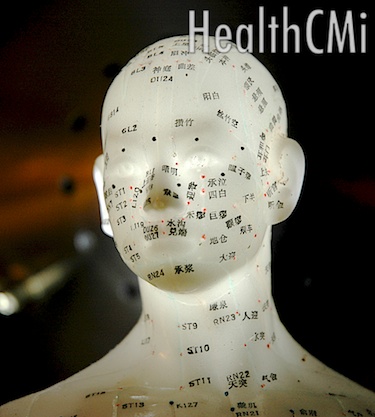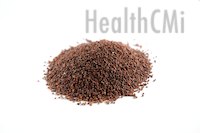A new study finds acupuncture and herbal medicine effective for treating children with bedwetting and other forms of involuntary urination. In a comparison of treatment modalities, the researchers discovered that combining acupuncture with herbal medicine creates a synergistic medicinal effect. The study group receiving both acupuncture and herbal medicine treatments demonstrated superior patient outcomes over the groups that received either acupuncture or herbal medicine only.  As a result, the researchers conclude that combining acupuncture with herbal medicine is more clinically effective than either treatment as a standalone procedure.
As a result, the researchers conclude that combining acupuncture with herbal medicine is more clinically effective than either treatment as a standalone procedure.
Researchers from the Department of Pediatrics of the Affiliated Hospital of Traditional Chinese Medicine of Capital University of Medical Sciences (Beijing) compared three study groups with a total sample size of 330 children with enuresis, involuntary urination. Group #1 consisted of 112 patients receiving herbal medicine treatments. Group #2 consisted of 108 patients receiving acupuncture treatments. Group #3 consisted of 110 patients receiving both herbal and acupuncture treatments. Treatments were administered for two months and a six month follow-up visit was used to gather and tabulate the data. Patients in all three groups demonstrated significantly positive patient outcomes. The combination group outperformed the other two groups with a clinically significant gain in the cure rate.
Enuresis is characterized by the involuntary loss of urine, especially during sleep, and is a common condition among children. All patients in this acupuncture continuing education study were children suffering from enuresis. Inclusion parameters restricted participants to those with a Traditional Chinese Medicine (TCM) differential diagnostic pattern of deficiency, cold and essence insufficiency. This pattern is characterized by excessive production of clear urine, soreness of the waist, lusterless complexion, listlessness and fatigue, aversion to cold, cold limbs, pale tongue with white tongue coating and a deep, slippery and weak pulse.
According to TCM theory, enuresis may be due to deficient kidney qi and yang and/or cold-deficiency in the urination bladder. The treatment principle is to benefit the kidney qi and yang and to astringe the essence. The herbal formula used in the medication group contained the following ingredients:
Yi Zhi Ren 6g
Bu Gu Zhi 6g
Sang Piao Xiao 10g
Fen Xin Mu 10g
Lu Jiao Shuang 10g
Gou Qi Zi 10g
Tu Si Zi 10g
Fu Pen Zi 10g
Jin Ying Zi 10g
Rou Cong Rong 10g
Zhi Ma Huang 5g
Bai Guo 6g
The decoction was taken at one dose per day for a course of two months. The dosage was age adjusted. The first stage of acupuncture points applied to patients were:
Baihui (DU20)
Shenmen (HT7)
Sanyinjiao (SP6)
Qihai (REN6)
Guanyuan (REN4)
Zhongji (REN3)
Shuidao (ST28)
The retention of acupuncture needling in stage one of the treatment session was 10 minutes. During needling, a TDP heat lamp was directed towards REN4. The next stage of acupuncture needling incorporated the use of the following points: 
Shenshu (BL23)
Pangguangshu (BL28)
Sanjiaoshu (BL22)
Mingmen (DU4)
During needling of these points, a TDP heat lamp was directed towards DU4. Acupuncture was applied every other day for a course of two months. Patients in the combination group received both herbal and acupuncture treatments. Two months comprised one course of care. The overall curative effective rate for the combination group was 85.5% compared with 79.5% for the herbal group and 69.4% for the acupuncture group. As a result, the researchers conclude that there is a positive clinical synergistic effect created by combining acupuncture with herbal medicine for the treatment of pediatric related enuresis.
Reference:
Wang, Zhongyi, Ming Li. “Observation of curative efficacy of acupuncture combined with herbs in treating infantile enuresis of the deficient coldn in lower essence type.” Chinese Journal of Information on Traditional Chinese Medicine 21.3 (2014): 92-93.


